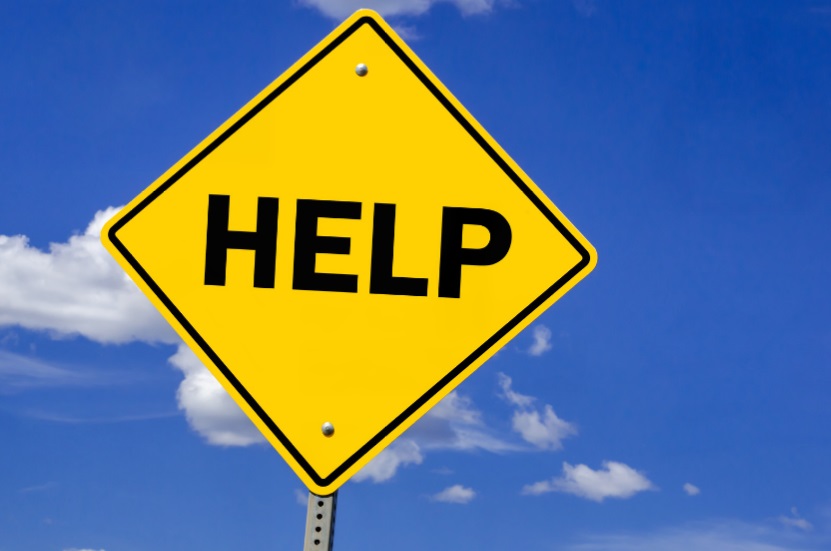Many people at some point in their lives suffer existential dread. It is the questioning of life, death, and all the uncertainties surrounding them. Do you find yourself plagued by questions such as:
- What is the meaning of life?
- Why should I care about going to school?
- Will our planet be hit by an asteroid tomorrow which wipes out all of humankind?
- Why do we all eventually die, and what’s the point of living if that is the case?
- Does anything we do even matter?
If your answer is yes or maybe, then you have experienced existential angst otherwise known as anxiety. We all have this experience at some time in our lives. Existence has its pressures and its pains and our fears and anxieties can get the best of us. But for some, the fear and anxiety are worse than for others.
Most often, these feelings are triggered by things such as:
- Unwanted life transitions
- The feeling of reaching a standstill in life
- Life-altering experiences
- Traumatic experiences
- Crisis on a large scale
- Depression
- Anxiety
- Identity shift
- The death of a loved one
- Failing at a career you loved
- Losing faith in religion
Existential thoughts are often very heavy and it can be hard to cope with them. But it is possible for you to cope and get through these feelings without getting into a full-on existential crisis.
Do All People Experience an Existential Crisis?
Anyone can experience an existential crisis that will have them questioning their purpose in life and their entire existence. The key is to understand the way that an existential crisis differs from anxiety or depression, so you can get the help you need to shake those thoughts and accompanying feelings.
It’s Ok to Not Know

Unwanted emotions such as sadness, fear, and worry are natural parts of life that occur from time to time. One of the easiest ways to manage these emotions is to accept these as natural. Existential dread is a bit harder on you and so you will have to go a little deeper. None of us can answer life’s questions and it’s okay that it doesn’t sit well with you. You won’t have immediate answers and you will have to accept this fact. This is not as convoluted as it seems, think about the last time you wanted to know something like how much you scored on a test/assessment or if your boss thought you were worthy of a promotion. Didn’t you eventually get the answers? You waited, or you did some extra digging, that allowed you to deal with that uncertainty, correct? But, you say, the questions that occur during an existential crisis are not ones that will have concrete answers. This is true, but it is important to know that you are not the only one with these questions. We are all born into this world that is full of unknowns that our minds want to know. Getting frustrated when you can’t answer questions is a normal part of being human. Just know that Existential dread is a normal phenomenon.
What Is an Existential Crisis?
An existential crisis is a moment when a person contemplates the meaning, purpose, or value of their life and are impacted in a negative way by this contemplation. It is triggered by a number of life situations as mentioned above that disrupts one’s self-identity or personal value systems. We each have different things that define different parts of our identity. A part of our identity is defined by our profession, our religion, our romantic partner, our parents, etc. When these constants in life are affected, we lose a piece of our identity and this is when we start questioning ourselves and the rest of our remaining identity. Loss, breakup, or divorce can all trigger existential dread. Even temporary changes, such as conflict with your partner or a bad decision for your children, can trigger an event of self-doubt. At these times you may feel adrift and this in itself can be another problem. At this point, people may become nihilistic as they give up all hope of life, religious systems, and moral principles. They may start to think that nothing in fact matters and there is no point in trying. Of course, this is in no way helpful.
What to Do in a Crisis
There are a number of things you can do to “right” yourself in a crisis. Explore your values to see what matters the most to you. What are your potential values? Choose from the list below:
- Compassion
- Optimism
- Community
- Honesty
- Respect
- Depression
- Anxiety
- Wealth
- Kindness
- Knowledge
- Status
Prioritize these to indicate which are the most important to you. Try to prioritize them in new ways. So you have lost your job, do you just give up on your value of wealth? How can you get back in a position where you are earning the same or even more than you were earning at your previous job? When you reconnect with your values you can reignite your sense of purpose so you can move forward.
Get Help

When you are faced with uncertainty, dark thoughts, and confusing thoughts, reach out to the people who are closest, the ones you trust. Share your feelings with them so that you can get some relief from the pressure that is currently overwhelming. You may be surprised to see how your loved one may have considered these exact questions, and they may be able to provide you with a different point of view, one that can give you some hope. You may even finish the conversation feeling more connected and less powerless. When one believes their lives lack purpose, it can be hard to see how they matter to their loved ones. Sometimes by simply realizing how you support and strengthen others can help you to reaffirm your values and see why it makes sense for you to carry on.
Write in a Journal

Journalling is known to have the ability to provide insight into your deepest thoughts. You don’t have to put too much time aside for this. With just a couple minutes every day, you can jot down your questions, feelings, and emotions. After a while, you may be able to notice patterns in what you are feeling and what is going on around you. What stands out to you from your journaling? What seems to happen before your feelings of dread? Is it reading/watching the news? Is it skipping a meal? Use your journal to also reflect on the aspects of your identity that add to your sense of meaning and that which fulfills you. You can also use it as an affirmation tool. Write about the things you love about yourself as you are now. Write about the strengths you are aware of and the ways in which you enrich the lives of your loved ones.
Meditate

Meditation has the benefit of reducing anxiety. It will thus help to reduce your existential anxiety. When you meditate you sit with your uncomfortable thoughts and you acknowledge them and then let them go. This ensures that they have no control over you. Over time, meditation helps to heighten your self-awareness and inner calm, so you can easily focus on your present rather than getting lost with worries and endless possibilities. Meditation can help to prevent you from getting trapped in the endless cycle of questioning your existence and purpose.
Distract Yourself from Distress

Your life may seem pointless and bleak with no reason for laughter, but the reality is that these things are not permanent – they don’t have to be. We all try to carefully construct our lives in an attempt to protect ourselves, but the truth is that we could lose everything at just a moment’s notice. This is true for all humans, no matter how terrifying it sounds/seems, it is true. If you keep considering the reality of this you will of course become afraid and upset and even frustrated over time. Circumstances can change so quickly, this is what your crisis is about. So all the more reason to enjoy now instead of focusing on the fickle nature of life. Distract yourself from your distress by engaging some of the following:
- Find a reason to smile or laugh
- Challenge yourself to do things without any reason
- Become more playful
- Connect emotionally with your children, partners, or friends
- Create joy in your life wherever you can
With these little changes, you can start noticing your worries, fade away and become a lot more manageable.
Get Professional Help

If you find you are completely unable to distract yourself from existential worries, it may be time to seek the help of a professional. How do you know when it is time to contact a therapist? When the uncertainty keeps you in limbo preventing you from making decisions. Two approaches to consider include existential therapies and Humanistic therapies. These therapies focus on the challenges and questions of existence.
You Can Navigate Existential Dread
It can be tough to navigate existential dread and one can easily get stuck as they ponder the answers to the bigger questions about their lives. So often, the answers we seek are not out there. Just living through the questions makes for the best life. To find the meaning in your life is to create your own meaning. Do the things that increase your connection to those and the world around you and create your very own meaning.
